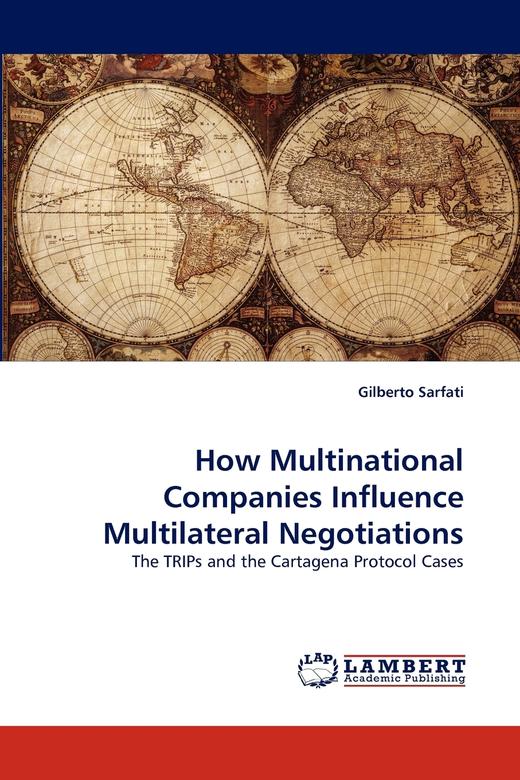【预售 按需印刷】How Multinational Companies Influence Multilateral Negotiations
¥812.00
| 运费: | ¥ 6.00-25.00 |
商品详情
书名:How Multinational Companies Influence Multilateral Negotiations
定价:812.0
ISBN:9783843380706
作者:Gilberto Sarfati
版次:1
出版时间:2010-12
内容提要:
The main objective of this work is to identify how multinational companies (MNCs) act as negotiators in the context of international governance. The main hypothesis is that MNCs try to influence the states and their coalitions, nationally and transnationally, by exercising their structural power as well as their soft power. The defense of their corporate interests depends on the confluence of their interests with those of the states as well as the states' vulnerabilities to the corporations' activities. In the first part of the book, I present the theoretical framework related to the Complex Interdependence Theory and the three-level chessboard of Nye. I recognize the limitations of the MNCs' influence power through an extension of the Frieden-Rogowsky model. The second part of the work shows the role of MNCs in two case studies: the negotiations that led to the creation of an international regime of intellectual property in the Uruguay Round of GATT (General Agreement on Tariffs and Trade) and the negotiations of the Cartagena Protocol of Biosafety, a complementary instrument of the Biodiversity Convention (CBD), which regulates genetically modified organisms (GMOs).
定价:812.0
ISBN:9783843380706
作者:Gilberto Sarfati
版次:1
出版时间:2010-12
内容提要:
The main objective of this work is to identify how multinational companies (MNCs) act as negotiators in the context of international governance. The main hypothesis is that MNCs try to influence the states and their coalitions, nationally and transnationally, by exercising their structural power as well as their soft power. The defense of their corporate interests depends on the confluence of their interests with those of the states as well as the states' vulnerabilities to the corporations' activities. In the first part of the book, I present the theoretical framework related to the Complex Interdependence Theory and the three-level chessboard of Nye. I recognize the limitations of the MNCs' influence power through an extension of the Frieden-Rogowsky model. The second part of the work shows the role of MNCs in two case studies: the negotiations that led to the creation of an international regime of intellectual property in the Uruguay Round of GATT (General Agreement on Tariffs and Trade) and the negotiations of the Cartagena Protocol of Biosafety, a complementary instrument of the Biodiversity Convention (CBD), which regulates genetically modified organisms (GMOs).
- 现代书店 (微信公众号认证)
- 中图上海旗下的一家进口图书专营书店。
- 扫描二维码,访问我们的微信店铺
- 随时随地的购物、客服咨询、查询订单和物流...










